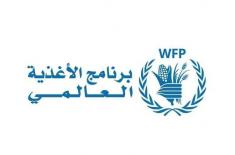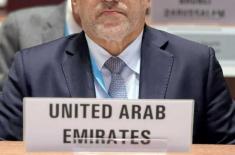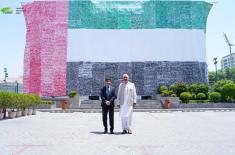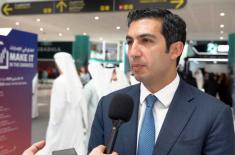
Experts Call For Collective Action To Safeguard Sindh's Vital Biodiversity
Faizan Hashmi Published May 22, 2025 | 07:30 PM

KARACHI, (UrduPoint / Pakistan Point News - 22nd May, 2025) Environmental Experts and academics called for immediate and collective action, speakers stressed the dire necessity of safeguarding Sindh's invaluable biodiversity.
These views were expressed in a seminar jointly organised by Sindh Environmental Protection Agency (SEPA) and NED university's Physics Department on Thursday on World Biodiversity Day.
They highlighted the escalating threats to the province's unique wildlife, plant life, and natural landscapes, underscoring that technology and individual responsibility are absolutely critical for securing a sustainable future.
The seminar was well-attended by a diverse group, including students, academics, researchers, SEPA officials, and members of the media.
NED University Vice Chancellor, Prof Dr Noman Ahmed, pointed out the immense challenge of waste management in Sindh, especially in bustling cities like Karachi, where a large population creates significant amounts of trash. He stressed the need for proper waste disposal and urged everyone to reduce their personal waste to protect sensitive areas like the province's vital turtle beaches, which are suffering from pollution.
Waqar Hussain Phulpoto, Director General SEPA, provided a detailed look at Sindh's impressive biodiversity, including 82 mammal species, 420 bird species, and diverse ecosystems like mangrove forests and the Thar Desert.
He warned that many species, like the critically endangered Indus Dolphin, are at risk due to human activities such as pollution, habitat loss, and illegal hunting. Phulpoto outlined ongoing efforts by the Sindh Wildlife Department and SEPA to conserve these valuable resources, calling for stronger environmental laws, more protected areas, and community involvement.
Dr Hira Mariam, Assistant Professor at NED University, showcased the power of Artificial Intelligence (AI) and Machine Learning (ML) in conservation. She explained how these smart technologies can quickly and accurately track species, analyze ecosystems, and even help stop wildlife poaching.
Dr Mariam called on universities to lead by example through sustainable practices and research.
Dr Muhammad Imran Aslam, Professor at NED University, highlighted the crucial role of the internet of Things (IoT) in protecting Pakistan's diverse natural heritage.
He explained how IoT devices like sensors and smart cameras can monitor forests for illegal logging, track endangered animals like the Indus Dolphin, and keep an eye on air and water quality in real-time. DrAslam urged policymakers to embrace these technologies and create "smart parks" for better conservation.
Engineer Dr Irfan Ahmed, Chairman of NED University's Physics Department, welcomed guests and emphasized how physics can help protect biodiversity through advanced tools and equipment, making conservation efforts more efficient.
Imran Sabir, Director Natural Resources Management at SEPA, stressed that responsible development must include protecting nature, not just following rules. Waris Ali Gabol, Director Regional Office Karachi of SEPA, concluded the seminar by calling for a multi-pronged approach to protect endangered species and prevent more from becoming endangered. He praised the innovative solutions presented by NED University, stating that a mix of new technology and traditional methods will best protect our planet.
Recent Stories

UN Chief strongly condemns killing of Israeli diplomats in US capital

'Make it in the Emirates' concludes with new industrial projects valued over AED ..

Iraq announces killing of terrorists in airstrike north of Baghdad

Fresh bread returns to Gaza for first time in over two months

UAE delivers key address for Arab Health Ministers Council at World Health Assem ..

Pakistan Association Dubai sets Guinness World Record with UAE Flag made of 24,5 ..

Sheikha Fatima offers condolences to Honourable Lady, Wife of Sultan of Oman, on ..

Fertiglobe eyes future growth with diverse project portfolio across UAE, globall ..

Nahyan bin Mubarak continues his visits to 'Make it in the Emirates 2025'

17,000 Job opportunities generated by ADNOC's ICV Programme for Emiratis

Modon Holding, Emaar Properties, Calidus Group, Silal Food & Technology join Nat ..

National CSR Fund hosts new ‘Impact Lab’ session, highlighting key climate a ..
More Stories From Pakistan
-
DC chairs meeting regarding preparations of monsoon rains
4 hours ago -
Parents of ‘drug addict student’ thrash school incharge
4 hours ago -
India facing diplomatic setbacks: Senator Afnan
4 hours ago -
Kashmiris to decide fate of J&K through plebiscite: DPM
4 hours ago -
Two killed in D.I.Khan firing incident
4 hours ago -
Pakistan fully confident of its nuclear security regime: FO Spokesperson
4 hours ago
-
Kasi condemns Khuzdar blast on school bus
4 hours ago -
Bugti vows to eliminate terrorism from Balochistan at all cost
4 hours ago -
Qaiser Sheikh attends pre-budget session “Shaping a Prosperous Future” at Bahria University
5 hours ago -
Play is disappearing from Children’s lives, affecting their learning and well-being
5 hours ago -
Int'l Biological Diversity Day celebrated with call for collaborative conservation efforts
5 hours ago -
WASA MD for expediting development works
5 hours ago